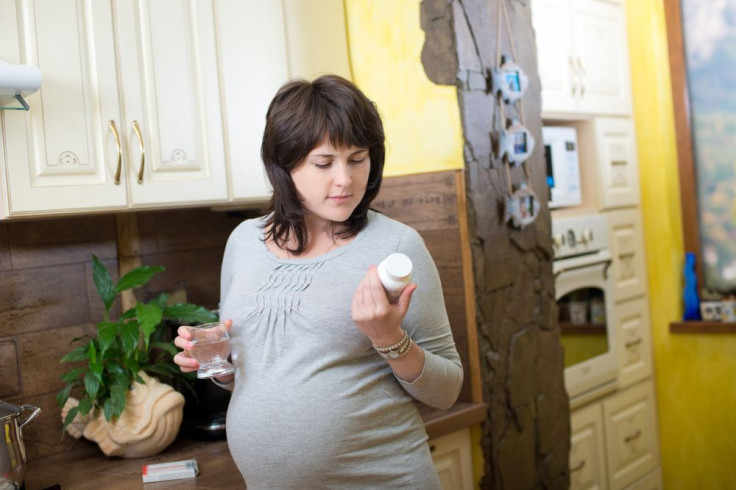Antidepressant Use During Pregnancy May Increase Risk Of Diabetes, Obesity In Offspring

Antidepressant use among pregnant women has been shown to contribute to several birth defects in babies, including heart problems, pulmonary hypertension, and low birth weight. A new report now suggests that the same drugs might also make babies born to these women more susceptible to type 2 diabetes and obesity later in life.
The research, carried out by scientists at McMaster University, found a correlation between the use of the medication fluoxetine during pregnancy, and an increased risk of obesity and diabetes in children, according to a press release.
Currently, up to 20 percent of women in the United States are prescribed an antidepressant during pregnancy. But according to investigator Alison Holloway, associate professor of obstetrics and gynecology at McMaster University, "obesity and type 2 diabetes in children is on the rise, and there is the argument that it is related to lifestyle and availability of high calorie foods and reduced physical activity, but our study has found that maternal antidepressant use may also be a contributing factor to the obesity and diabetes epidemic."
Pregnant women are already vulnerable to depression, and pregnancy hormones, which were originally thought to alleviate symptoms, ended up making it more difficult to cope with the condition. According to the American Pregnancy Association, 14 to 23 percent of women will struggle with symptoms of depression during pregnancy. Depression can put both mother and baby at risk of health problems if it's not treated. Antidepressants may be prescribed in more serious cases.
Antidepressant medications, such as citalopram, fluoxetine, and sertraline had been linked to a rare but serious newborn lung disorder called persistent pulmonary hypertenstion, when taken during the last half of a pregnancy term. But despite a wide range of diseases that using the meds has been linked to, their role in obesity and diabetes among children has been poorly studied. "While it is known that these drugs can increase the risk of obesity in adults, it is unknown whether a woman's antidepressant use during pregnancy increases the risk of metabolic disturbances in her children," Holloway says.
The researchers aimed to study if the use of fluoxetine, during pregnancy, resulted in development of fatty liver in the baby, an outcome commonly seen with obesity. "We have demonstrated for the first time in an animal model that maternal use of a class of antidepressants called selective serotonin reuptake inhibitors, or SSRIs, resulted in increased fat accumulation and inflammation in the liver of the adult offspring, raising new concerns about the long-term metabolic complications in children born to women who take SSRI antidepressants during pregnancy," said Nicole De Long, who will present the research on Sunday at the joint meeting of the International Society of Endocrinology and The Endocrine Society.
But the researchers are quick to point that their study does not recommend that women stop taking antidepressants while pregnant. Instead, they wanted to promote awareness of the conditions that the child may become susceptible to. "The benefit of the study is it may help in the identification of a high-risk group of children who may require specific interventions to prevent obesity and type 2 diabetes later in life," De Long said.
The researchers are now trying to understand the chemical reactions that occur when these drugs are taken during pregnancy, and why they lead to complications in offspring. "If we can understand how the antidepressant causes adverse metabolic outcomes in the offspring than we can design therapeutic strategies to prevent the damage while allowing women who require these drugs to be treated but reduce the potential harm to the offspring."
Source: De Long N, Holloway A. At The Joint Meeting Of The International Society Of Endocrinology And The Endocrine Society. 2014.



























